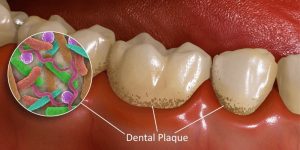25 / 05 / 2023
Tooth Decay May Make Colon Cancer More Deadly
Researchers reveal that a common oral bacteria, often implicated in tooth decay, may accelerate the growth of colon cancer.
The study carried out the Columbia University College of Dental Medicine have determined how F. nucleatum plays a role.
The findings could make it easier to identify and treat more aggressive colon cancers. It also helps explain why some cases advance far more quickly than others, thanks to the same bacteria found in dental plaque.

Researchers have long known that the disease is caused by genetic mutations that typically accumulate over the course of a decade.
Scientists have also demonstrated that about a third of colorectal cancers are associated with a common oral bacterium called F. nucleatum. Those cases are often the most aggressive, but nobody knew why. In a prior study, Han’s research team discovered that the bacterium makes a molecule called FadA adhesin, triggering a signalling pathway in colon cells that has been implicated in several cancers. They also found that FadA adhesin only stimulates the growth of cancerous cells, not healthy cells.
What the study found
In the current study, the researchers found in cell cultures that noncancerous colon cells lack a protein, called Annexin A1, which stimulates cancer growth. They then confirmed both in vitro and later in mice that disabling Annexin A1 prevented F. nucleatum from binding to the cancer cells, slowing their growth.
The researchers also discovered that F. nucleatum increases production of Annexin A1, attracting more of the bacteria. “We identified a positive feedback loop that worsens the cancer’s progression,” says. Han. “We propose a two-hit model, where genetic mutations are the first hit. F. nucleatum serves as the second hit, accelerating the cancer signaling pathway and speeding tumor growth.”
Clinical implications
The researchers then looked at an RNA-sequencing dataset, available through the National Center for Biotechnology Information of 466 patients with primary colon cancer. Patients with increased Annexin A1 expression had a worse prognosis, regardless of the cancer grade and stage, age, or sex.
Next steps
The researchers are currently looking for ways to develop Annexin A1 as a biomarker for more aggressive cancers and as a potential target for developing new treatments for colon and other types of cancer.
Author: Julie Bissett






